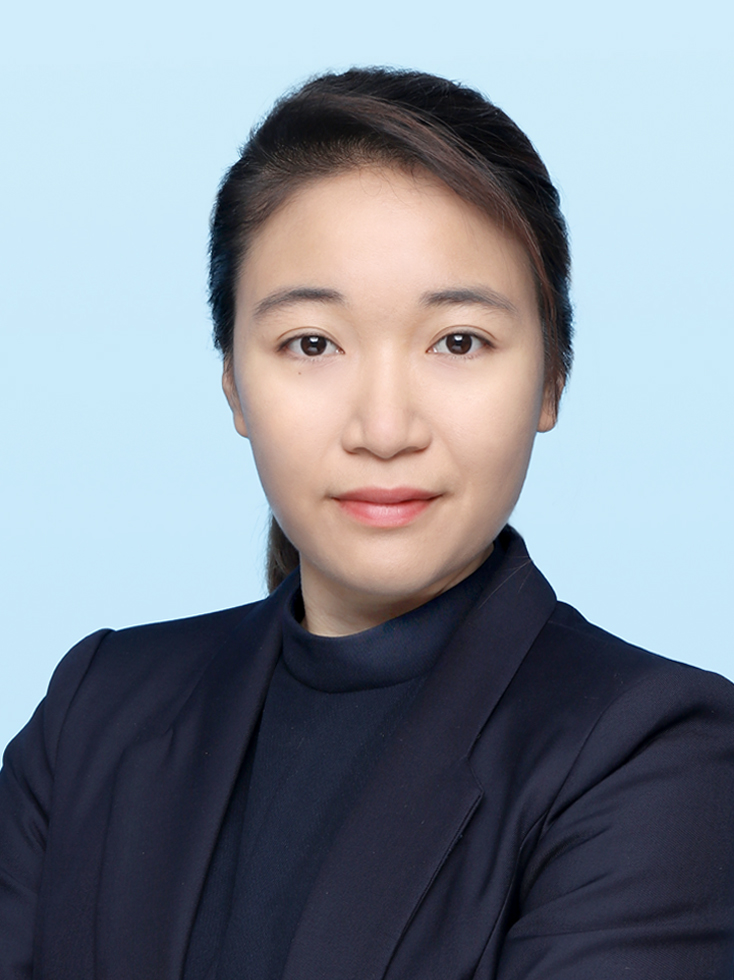GetFundedAfrica connects global investors with African startups, many of which have a social impact element.
GetFundedAfrica is a tech-enabled marketplace that helps to educate and connect would-be investors with African startups. The organization aims to shorten the distance between ideas and funding and seeks to allow startups to grow their business.
GetFundedAfrica achieves its goals through a three-pronged approach. Firstly, the organization uses AI-powered algorithms to filter which companies can receive funding, these companies can then be matched with investors. Secondly, GetFundedAfrica makes use of a variety of media platforms in order to tell the stories of successful African startups, thereby helping to grow the startup scene across the continent. Finally, GetFundedAfrica offers a series of on demand online courses aimed at knowledge sharing around venture capital and startup funding, both of which are relatively new arrivals to Africa.

Here, we speak to Diana Teoh, Head of Investment and Growth at GetFundedAfrica about their offerings and to gain insight into the startup scene and the challenges faced when startups seek investment.
Can you tell us about GetFundedAfrica’s mission? What are you trying to achieve?
GetFundedAfrica’s mission is to uplift the people and economies in Africa through entrepreneurship and telling African stories to the world.
Can you give us a breakdown of your numbers?
To date, we have successfully helped startups fundraised USD 200 million collectively across various verticals.
You offer a series of educational programs, how can startups benefit from them?
We offer a range of programs specifically to support startups from idea stage to hatching their ideas into MVP, growth and scale programs to support local and cross-border expansion. Most importantly, we also offer a fundraising / investor readiness program to ensure that startups have all the relevant materials ready and understand the investor mindset before going through a rigorous fundraising journey.
The program brings together the best features of an effective learning environment, real-life experience and knowledge from investors, mentors and experts as well as peer-to-peer sharing of ideas, resources and information.
What support do you offer to investors?
GetFundedAfrica offers highly vetted African startup dealflows to investors globally, especially for VCs and aspiring investors in Africa who are unsure where to find reliable information on African startups to make investment decisions.
We provide flexible investment options, there are three ways that an investor can invest in these startups:
Invest via our platform: A startup will be recommended based on the investment criteria shared, this option is aimed at African investors who are new to startup investment, they can start at a minimum of USD 1,000.
Invest via our Syndicate: We are raising a USD 20 million syndicate for investors who want to have the option to invest on a deal-by-deal basis or in all the startups listed in the syndicate.
Invest via GFA Venture Fund: At the same time, we are also raising a USD 100 million fund to invest in high growth and scalable startups that are ready to cross-border, we have adopted the accelerator VC model where we not only invest in the startups but will also provide a 3-month growth program to help them scale
For investors that also invest in funds, we also provide support to new and experienced fund managers to support their fundraising activities seeking suitable LPs for them.
How does your mentor offering work?
We run a pro bono mentoring model, startups will be matched with mentors who can provide advice based on the challenges or the help that they have requested via the GetFundedAfrica platform vs. the skillset and industry criteria that the mentors can offer. For example, if you are a fintech startup seeking advice on expanding to another country and would like to know the best go to market strategy to adopt, you will be matched with a local expert who has experience and go to market knowledge.
The minimum mentoring time commitment for a mentor is an hour a week for three months, and it has to be mutual effort. GFA team will gather feedback from both parties to ensure that the mentoring sessions met the expectations and whether they would like to continue the mentoring after the three-month duration.
There are cases of compensation, however, these are negotiations between the startup and mentor depending how much value the mentor brings to the startup, the compensation can either be in the form of cash or small percentage in the company as a signal of good faith toward becoming a long term advisor.
You also connect startups with corporate businesses seeking solutions.
Corporates are continuously seeking to improve their business operations, expanding or seeking new solutions for a challenge they are facing internally or within the industry, hence there has been an increase of corporate innovation programs in Africa in the last few years that foster partnerships between corporate and local startups.
For example, one of the most common corporate innovation programs is called a pilot program, whereby a corporate has a particular challenge that they are facing and don’t have the solutions to solve the problem, or are looking for disruptive solutions that can push them to be the leader in the industry. They will release a brief stipulating the underlying problem that they are facing and GFA will help facilitate this process to promote, raise awareness of the program to help attract startups across Africa to apply to be part of the program and to conduct a strict screening process to shortlist suitable startups that fit the problem criteria stipulated in the brief. Shortlisted startups will be invited to participate in a mini demo day to pitch their ideas to the corporate and generally the finalist(s) will either receive grants, investment opportunities (if they have a corporate venture capital arm), or an M&A to continue their business operations that serve as the corporate’s solution.
Can you give us some highlights involving specific companies?
Almost all or most of the startups that we have helped to fundraised are tied to social impact one way or another, there are a few companies that are my personal favorites mainly because of the innovative solutions.
DeepEcho is a Moroccan AI medical imaging startup that is building an intelligent ultrasound to aid in diagnosing, detecting, and preventing prenatal complications. With the support of a high-performance Deep Learning algorithm software, the healthcare startup is on a mission to minimize infant and maternal death rates caused by ultrasound diagnosis mistakes.
Snarkhealth is a health-tech startup that helps patients improve their access to cost efficient healthcare through its alternative payment model using blockchain technology, liquidity pools and a trusted payment network by removing the need for governmental or commercial healthcare insurance.
PaveHQ is a cross-border education marketplace and ecosystem helping students seamlessly search, compare and apply to institutions globally through a centralized and easy-to-use platform.
Gist Mobile stands for Global coverage, Instant connectivity, Sustainable technology, and Transparent services. It is a global digital app, capable of virtually providing mobile data plans across 120+ countries and up to four local and international numbers on a single device without the need for a SIM card. It is the first app service to offer customers virtual numbers and data on the same platform.
Omnibiz connects fast-moving consumer goods (FCMGs) manufacturers to retailers by digitizing the supply chain stakeholders. Retailers can purchase and restock conveniently from over 200 product brands through the MyStore app, a bookkeeping solution for retailers to manage their customers and inventory. This app, which was launched in November last year, also allows retailers to access credit, buy-now-pay-later options, and other financial services. They have recently successfully closed a USD 15 million pre-series A round.
What challenges are African founders, or small businesses, facing when it comes to securing investment?
There are usually a few challenges:
Not knowing how to pitch their business – focusing too much on product or tech features instead of the underlying problem that they are solving and the market potential.
Not doing their homework about investors – many investors only invest in certain regions, verticals and ticket size, many startups don’t spend time doing their research when reaching out to investors and ended up wasting time for both parties.
Not knowing their numbers – as a founder, it is important to know the basic metrics about your business such as MoM, ARPU, burn rate, founders should know their numbers by heart.
Interview techniques with investors – many founders are inexperienced when it comes to answering investors’ questions after a pitch, they beat around the bush and don’t provide a clear and direct answer to the question, and they don’t have the habit of taking notes to keep track of these questions and why are they important.
Lack of knowledge on how to conduct a valuation of their business.
Lack of knowledge of which investment collaterals to adopt like terms sheets, convertible debt when fundraising and how these choices may affect their business.
They don’t have basic investment materials ready, such as financial models, data rooms, et cetera.
What can be done to improve the situation?
Practice pitching as many times as possible and keep an open mind receiving feedback from mentors, investors and audiences from various experience backgrounds, pay attention to the questions they asked to validate how much they understand your business and solution. The basic rule is that if a 5-year-old can understand your pitch, you are on the right track.
Do your homework on the investor and understand what they are looking for, read up on the person that you will talking to and the recent success of the company, and have all your investment materials and numbers ready
Always have a call to action at every investor meeting, whether it be to have another meeting to check in on each other’s interest, or requesting the investor to be a mentor et cetera, you need to know what the main objective of the call is and have a backup call to action option, if possible.
“Failing to plan is planning to fail.”
At GetFundedAfrica, we created a fundraising / investor readiness program tailored for this purpose, we understand many startups in Africa are struggling in this aspect and we would like to support them by coaching them on how to tackle these challenges, not only to provide advice on preparing investment materials, but also lots of interview and pitch practice with global investors.
What areas or sectors are seeing receiving the most attention from investors?
What we have observed so far is fintech, health tech and retail tech startups have sparked high interest from investors, we believe it is because the business model and solutions of these startups are easier to understand, it is much more familiar to experienced investors who are just starting to invest in the African market, as well as for new African investors who are diversifying their investment to include startups as one of their portfolios.
Where are the investors who join your platform based?
We have diversified list of investors spread across globally who are either experienced in the African investment / startup ecosystem or who are totally new and would like to penetrate into the market through investing with GetFundedAfrica.
What broad trends are you seeing across the African startup environment?
We believe that these are some of the verticals that will continue to grow next year, fintech, Health tech, agritech, edtech, clean tech / climate tech, proptech, insurtech, SaaS for logistics and blockchain. The basis of this belief is that there’s a huge gap in the African continent that requires disruptive solutions to solve these problems.
What countries or geographic regions seem most promising to you?
We have seen strong growth in startups in Nigeria, Kenya, Ghana, Morocco, Egypt and Tunisia.
–
Read our other exclusives with Flat6Labs, Shorooq Partners and VentureSouq.
